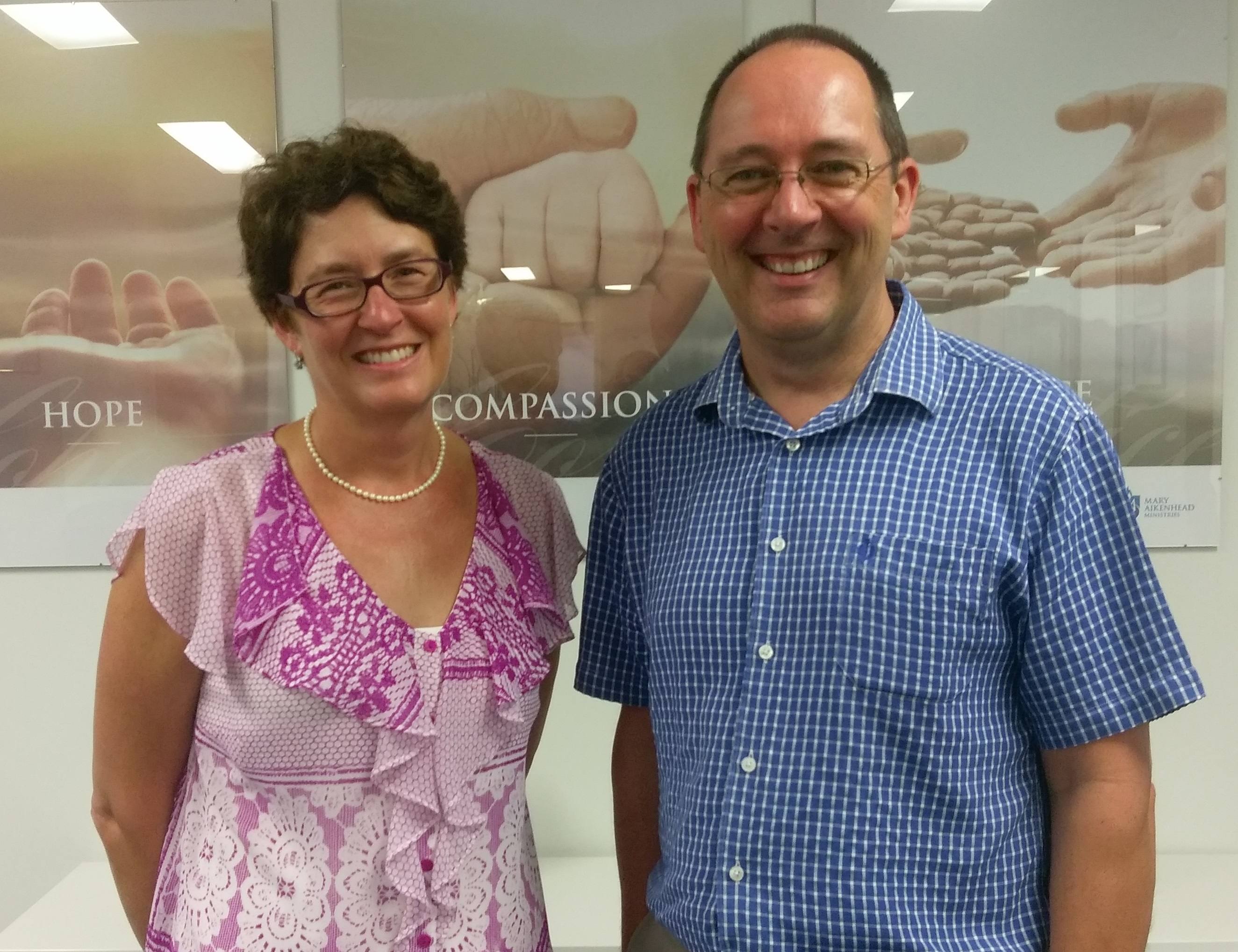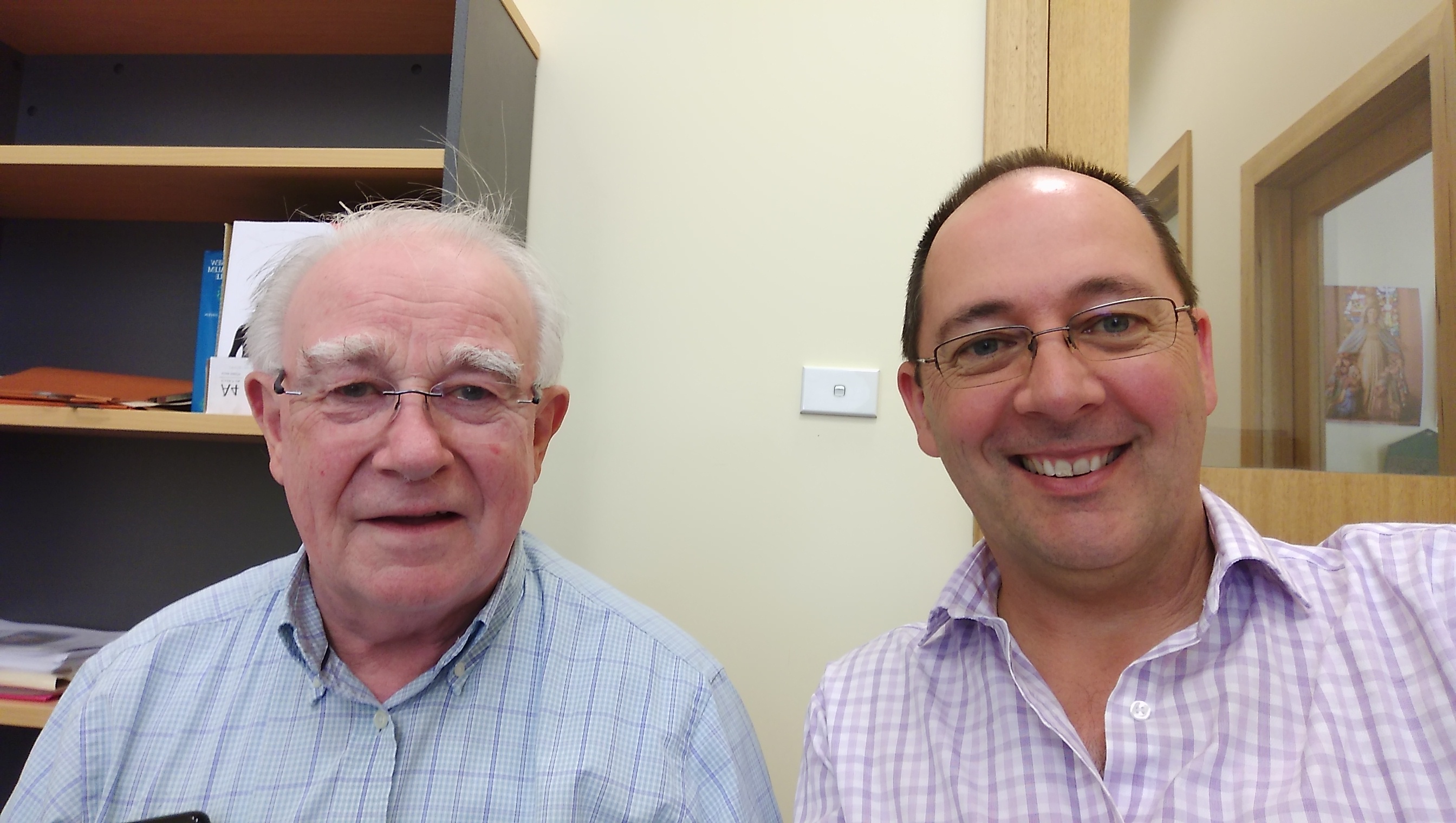Welcome to 2018
If you are like me it takes most of January to get used to writing 2018 instead of 2017.
 My see the year ahead as being a great one for AMPJP. After having spent the last year or so in our establishment phase we are now ready for action. On 30th January I had a very productive Strategic Plan drafting meeting with AMPJP Council members: Paul Oakley, Eva Skira and Rosemary Copeland. This will be discussed at the AMPJP Council meeting on 21 February and I believe the resulting Strategic Plan will give us all a greater common sense of purpose.
My see the year ahead as being a great one for AMPJP. After having spent the last year or so in our establishment phase we are now ready for action. On 30th January I had a very productive Strategic Plan drafting meeting with AMPJP Council members: Paul Oakley, Eva Skira and Rosemary Copeland. This will be discussed at the AMPJP Council meeting on 21 February and I believe the resulting Strategic Plan will give us all a greater common sense of purpose.
Picture source: http://imageslogotv-a.akamaihd.net//uri/mgid:ao:image:logotv.com:261597?quality=0.8&format=jpg&width=980&height=551
Meeting AMPJP members

On 24 January 2018 I met with Christine Raeside, Executive Officer at the office of the Trustees of Mary Aikenhead Ministries (TMAM) in Sydney. Christine joined TMAM in October 2017.
TMAM was established by the Holy See in 2009, making it one of the oldest Ministerial PJPs in Australia. TMAM is responsible for schools in NSW, Queensland and Victoria. It is also responsible for St Vincent’s Health Australia, the largest Catholic not-for-profit health and aged care provider in the nation. Embedded within the Health, Aged Care and Education Ministries under MAM’s Stewardship is a wide range of Social Services that are provided to assist those at the margins. If you would like to learn more about TMAM please visit their website.
On 30 January 2018, I briefly visited the office of Dominican Education Australia (DEA)- mainly to meet our Treasurer, Sue Fabian to sign some documents. The DEA staff have recently moved to Hunter’s Hill and are still setting up their new office. I look forward to visiting again for a more lengthy discussion with the DEA staff.
Increasing understanding of AMPJP members
I have continued consulting with AMPJP member organisations regarding whether their:
- PJP has joined TJHC “one Church” approach;
- PJP’s Constitutions (corporate law) publicly available; and
- PJP’s Statutes (Canon law) publicly available.
I am finalising a few documents that I will be distributed in early February for discussion at the 21 Feb 2018 AMPJP Council meeting:
- gender equity in PJPs;
- draft Strategic Plan; and
- draft governance principles.
Updates to AMPJP website
New events:
I have also posted the following in the public news section of the AMPJP website:
- Lent is coming (News)
- Year of Youth (News)
- Employment opportunity (News)
- Religious Short Film Prize (News)
Members of AMPJP can access the following new items that I have posted in the Member area of our website:
- Holy See Directive of Formation (Member area)
- Canonical Statutes of AMPJP members (Member area)
Developing partnerships within the Church
- On 10 Jan 2018, I met with the Very Rev. Ian Waters, a priest of the Melbourne Archdiocese and an experienced and well-qualified canonist. Ian was involved with the establishment of a number of PJPs (St John of God, Calvary Ministries, Kildare Ministries and Mary Aikenhead Ministries) either in contributing to their statutes, as a Member representative or as a canonical steward (Trustee of a PJP).

- Some of the specific issues we clarified in our discussion:
- “Catholic works” (is a good description for PJPs) and “the works of Catholics” (is a good description for some Associations of Christ’s Faithful)
- It would be unlikely that an Ecclesiastical Authority would consent to a PJP changing status to be an Association of Christ’s Faithful as this would involve an alienation of Church property and ministry.
- Canonical stewards need formation which includes significant time in prayer/spiritual experiences (Some PJPs have an annual retreat of at least two nights led by an appointed spiritual guide and start their meetings with about an hour of prayer and discernment time)
- It is vital to choose as people to be canonical stewards those who are appropriately qualified, experienced, and soundly committed to the Catholic faith
- It is not technically correct to say that there wasn’t lay governance before Ministerial PJPs. Lay people are all people who are not clerics. Therefore, the leaders of Religious Institutes of female Religious or of Religious brothers being non-clerics are laity.
- Given the time it can take to have statutes amended by the applicable Ecclesiastical Authority it is best to keep statutes as succinct as possible. By-laws can then be used for more detailed procedures that may need to change.
- Juridic is the term often used by North Americans. Juridical is used by many other English-speaking nations and is probably more correct as the “cal” suffix denotes it as an adjective.
- Canon Law recognises three types of “persons”:
- Physical – a person who has received the Church’s sacraments of initiation
- Moral – i.e. established by Jesus (The Church; The Papacy; The College of Apostles (and their Bishop successors)).
- Juridical – created by Church law
The following entities are determined by canon law to be juridical persons:
-
- A Diocese
- A Parish
- A seminary
- A Religious Institute
- A Province of a Religious Institute
- A Religious House (the local foundation – not necessarily each residence)
- A Province of Bishops
- A National Conference of Bishops
- Other (including Ministerial) PJPs.
- We discussed at considerable length three other topics: the history of PJPs in Australia; Efficient and accountable canonical structures; and the possibility of a “Conference” structure for Ministerial PJPs. I will post some of that discussion at a later date when I have collected more information from other sources.
- On 15 Jan 2018, I met with Joe McCarthy, Marist Association: Deputy Leader, Director of Belonging & Development.

Joe said the Marist Brothers International have made an application to Congregation for Institutes of Consecrated Life and Societies of Apostolic Life at the Holy See for them to establish an Association of Christ’s Faithful (ACF) called The Marist Association of St Marcellin Champagnat. This will be established as an international association with national/provincial Conferences. At this stage the Australian Conference is the only one ready to constitute.
If/when this ACF is established the Marists will establish a company under the Corporations Act to be the civil entity (The Marist Association of St Marcellin Champagnat) for the canonical ACF. with both being known as The Marist Association of St Marcellin Champagnat:
The Marist Association in Australia currently has 700 lay members and 100 Marist Brother members.
Marist Brothers are welcome to join the Association and do so while continuing their membership of the Marist Brothers.
When a lay person is interested in joining they first need to submit an expression of interest. A member of the Marist Association pastoral team will then interview the person and assist them through a period of discernment regarding progressing to an application to join the Association. If the discernment process concludes with the person still wanting to proceed, the person submits a formal application to join. This application is decided upon by the Association Council.
When it is canonically and civilly incorporated the Marist Association will be responsible for 52 schools and various youth ministries across Australia. The members of the Association will be responsible for electing the Council of canonical stewards. This Council will also be the Board of Directors for the purpose of Australian Corporation law. The canonical statutes and corporation constitution both require more than 50% of the Council to be non-Executive members. This is to prevent employees of the Association from dominating the Council.
For more information visit: http://www.maristassociation.org.au/marist-association-home/
- On 12 Jan 2018, I met with Gabrielle McMullen in her beautiful garden. She was very involved in the formation of the AMPJP and has recently completed 6.5 years as a Trustee of Mary Aikenhead Ministries.

Our discussion was wide-ranging but I share here some of the issues that others may find interesting:
Conference paper
In late 2017 Gabrielle was invited to submit an abstract for a potential paper to be delivered at the International Festival of Creativity in Church Management on 25-27 June 2018 at Villa Nova University in Philadelphia. Gabrielle advised the AMPJP Council of the invitation and her proposal that the paper concern the establishment of AMPJP. The Council supported Gabrielle’s proposal and she duly submitted the abstract. During our meeting Gabrielle received an email from the conference organisers accepting her proposed paper on the Australian PJPs’ founding of AMPJP.
I have agreed to collect some of the information required for the drafting of the paper. For your information, here is the abstract of the paper:
Advancing Lay Leadership in the Australian Church
Professor Gabrielle McMullen AM and Br Paul Oakley cfc
Since 1994, ten ministerial public juridic persons (PJPs) have been instituted in Australia to take the education, health and community service ministries of sixteen religious institutes purposely into the future as ministries of the Catholic Church. In the period from 2012-2016, representatives of these PJPs explored means of fostering collaboration between the respective entities, leading to the establishment of the Association of Ministerial PJPs Ltd in May 2016. This was an historic development for the Australian Church in relation to lay ecclesial leadership, with the Association now the peak body for these new lay-led Church ministries. The presentation will explore the nature and purposes of the Association, the first such body in the world, and how the Association supports the PJPs’ canonical stewards in their ministry and provides a vehicle for the PJPs to interact formally with one another and, in a corporate sense, with the Australian Bishops and Church agencies.
Associations of Christ’s Faithful
We discussed the differences between the ministerial PJPs established to date in Australia and Associations of Christ’s Faithful (ACFs). I was surprised to hear that the Pallottines have such an association uniting priests, religious and laity – the Pontifical Council for the Laity recog
Gabrielle highlighted one of the benefits of the ACF structure being more inclusive leadership and governance of the entity. This is in contrast to the usually small group of appointed trustees in the case of ministerial PJPs. It seems to me that an ACF is like an entity under the NSW Associations Incorporations Act (e.g. a community organisation that may have hundreds of members all of whom have the right to vote on who will be the Management Committee (governing body)).
The Marist Brothers have applied to the Holy See to establish an ACF for their educational and community service ministries (see article below on my meeting with Joe McCarthy). It is interesting that the ACF model has not been more widely adopted for canonical stewardship of Church ministries.
Interesting resources
ACBC office of employment relations “Our Work Matters” – recent data on Church employment. “Our Work Matters” is available for download at www.accer.asn.au.
Mary Aikenhead Ministries has
The three levels of story:
- Enduring Story – Jesus and his life, ministry and the values of the Gospel
- Expressive Story – How this story and these values have been given expression in the prophetic response of Venerable Mary Aikenhead and the Congregation through their charism, ministry and tradition
- Evolving Story – How we today work with these legacies in an interpretive manner that carries our faith, spirituality and tradition purposefully forward to meet the challenges revealed in the “signs of the times”
AMPJP Executive Officer plans for February 2018
I will be in Melbourne 19th January until 23rd February 2018